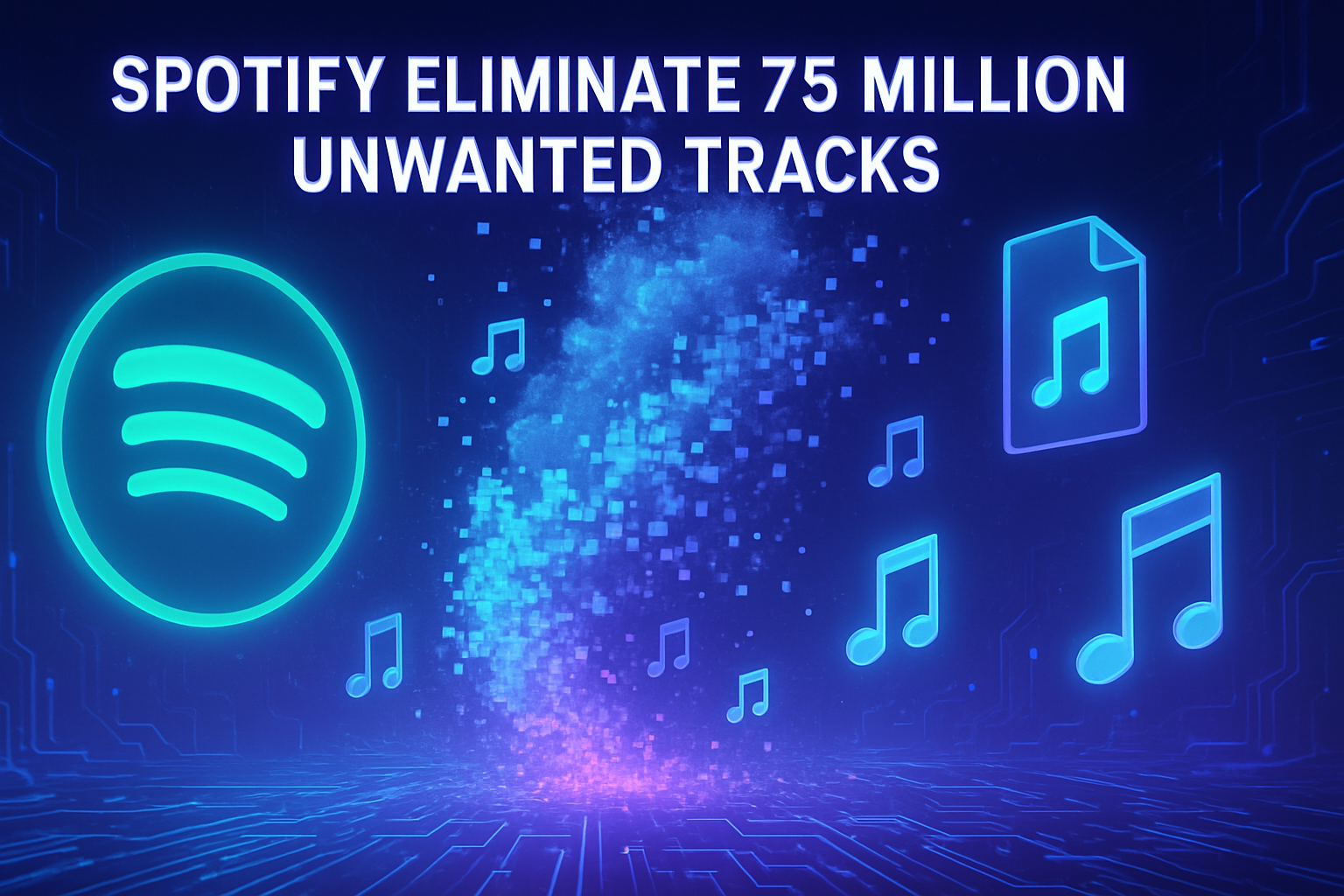Spotify reacts vigorously to the proliferation of unwanted content, eliminating more than 75 million fraudulent tracks. Artificial intelligence is now generating a major controversy, threatening to dilute the artistic value of music. The platform is adopting new measures to ensure transparency and compliance, a fundamental issue in today’s music industry. Artists and publishers are called to adhere to rigorous standards, thereby reconfiguring the musical landscape.
A major cleanup on Spotify
The music streaming platform Spotify has undertaken a massive cleanup of its library of tracks. More than 75 million tracks deemed undesirable have been eliminated over the past year. This initiative addresses the excesses caused by the rise of generative artificial intelligence that floods the service with low-quality content.
Reactions to generative AI
The rising popularity of certain groups created by algorithms, such as The Velvet Sundown, has raised concerns within the music industry. Their flagship track surpassed one and a half million listens in just one month. This situation prompted Spotify to revise its policy regarding tracks created using artificial intelligence. It stated that it did not want to encourage the proliferation of algorithmically generated content to avoid paying royalties.
New transparency measures
In addition to this cleanup, Spotify announced measures aimed at encouraging artists to be more transparent about their use of AI. Charlie Hellman, the head of music on the platform, emphasized the importance of not punishing artists who use AI in an authentic and responsible manner.
Standardization of AI use
Musicians and producers are now invited to adopt a new standard developed by the professional organization DDEX. This standard allows indicating in a track’s description whether it has been completely, partially, or not at all produced using AI. This metadata will be integrated into the titles on Spotify, thus reinforcing the need for greater transparency in the use of this technology.
Commitment from labels and distributors
More than 15 labels and distributors have already taken the initiative to conform to this nomenclature. Although the system is based on volunteerism, it marks a significant step towards better regulation of AI use in music. The opacity surrounding this technology, criticized by several industry players, requires urgent and effective measures.
Actions against AI abuses
Spotify leaders, including Sam Duboff, have reaffirmed their commitment to addressing malicious actors who exploit AI abusively. These actors manipulate search and recommendation algorithms to promote content on the platform, creating unfair competition with traditional artists.
A model to follow?
The French Deezer positions itself as a pioneer in transparency, being the only platform to systematically report tracks that are fully generated by AI. Spotify’s willingness to adopt a similar approach could influence the future of online music content.
Frequently asked questions regarding Spotify’s fight against artificial intelligence
Why did Spotify eliminate 75 million tracks?
Spotify took this action due to the increasing presence of unwanted tracks generated by artificial intelligence, aiming to improve the quality of music available on its platform.
How does Spotify identify unwanted tracks?
The platform uses advanced algorithms and in-depth analyses to detect songs that do not meet quality criteria or are considered fraudulent.
What types of tracks were removed from Spotify?
The removed tracks include those fully generated by AI, as well as other songs deemed low quality or non-compliant with Spotify’s content standards.
What measures is Spotify taking to prevent the reappearance of these tracks?
Spotify has announced new transparency measures, including collaboration with DDEX to allow artists to indicate whether they have used AI in their music productions.
Will all AI-generated tracks be removed from Spotify?
No, Spotify does not wish to punish artists who use AI responsibly. The goal is to regulate its use rather than ban it entirely.
How can artists comply with the new standards regarding AI use?
Artists and producers are encouraged to follow DDEX’s recommendations, which specify how to indicate the use of AI in their track descriptions.
What are the consequences for artists who do not comply with these new standards?
Although the system is based on volunteerism, failure to comply with the recommendations may lead to exclusion from certain opportunities on the platform.
What has been Spotify’s reaction to the rise of AI-generated groups?
Spotify has expressed its concerns about the impact of groups like The Velvet Sundown, while confirming that it does not wish to promote tracks that avoid paying royalties.






